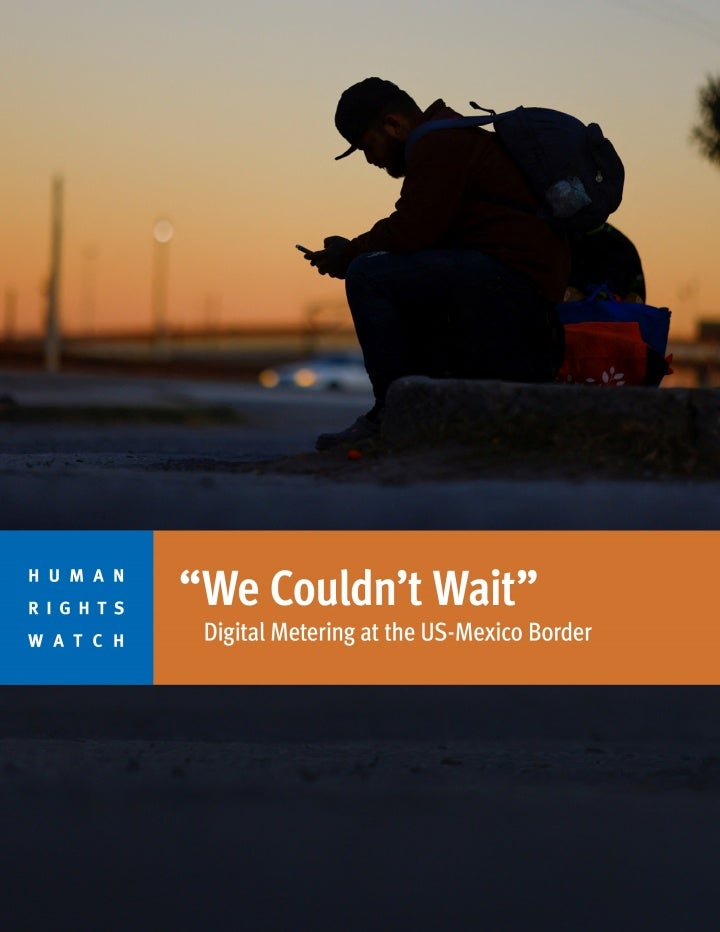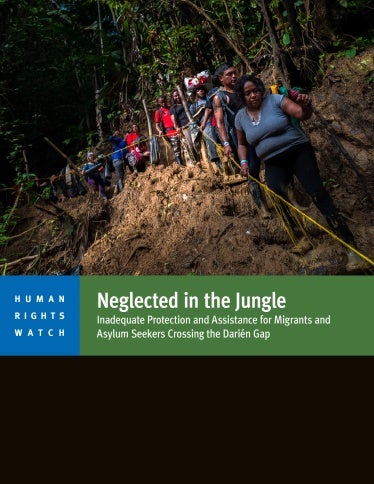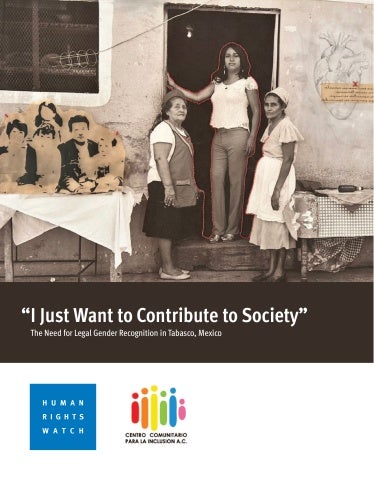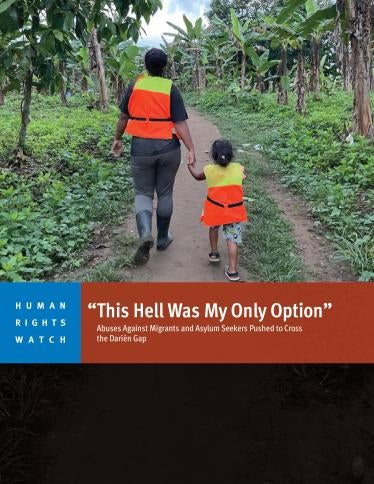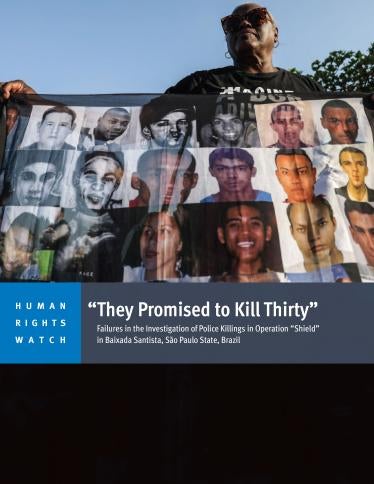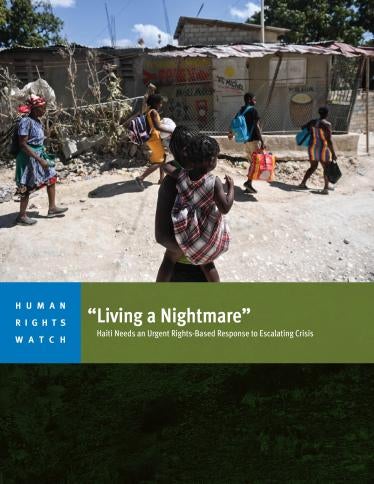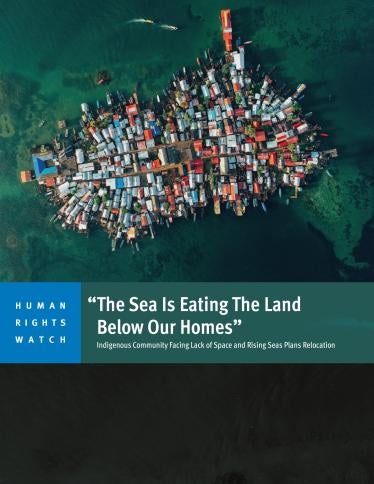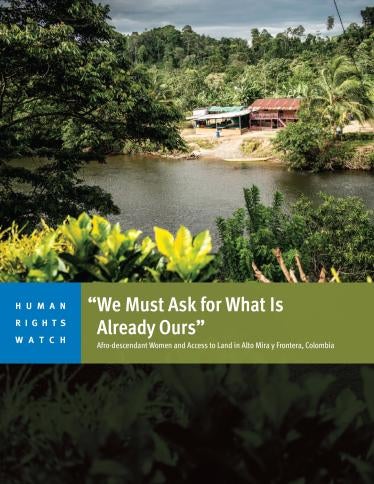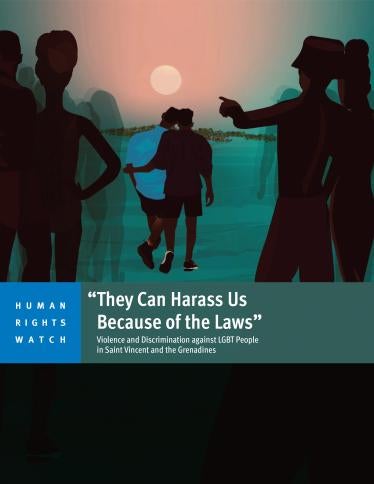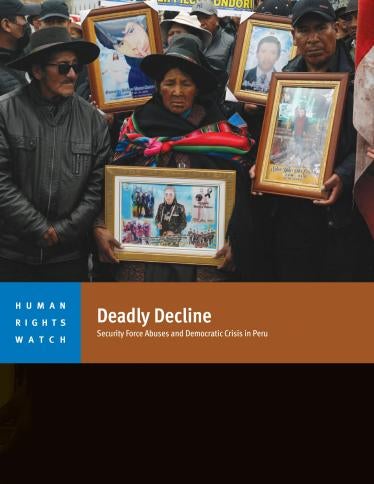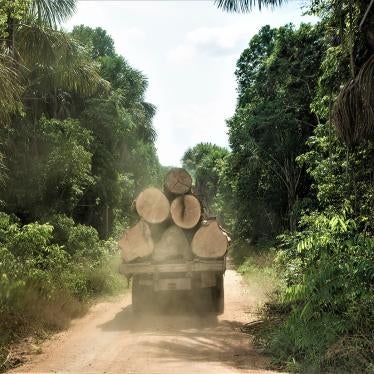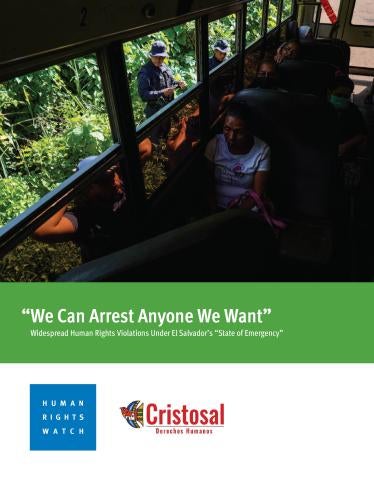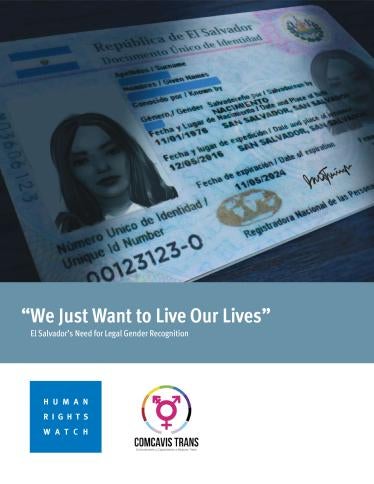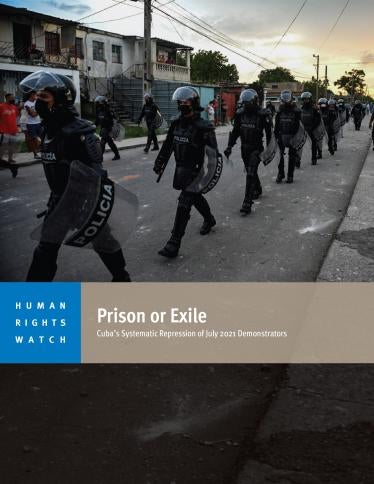“We Couldn’t Wait”
Digital Metering at the US-Mexico Border
The 68-page report, “We Couldn’t Wait: Digital Metering at the US-Mexico Border,” details how the Biden and López Obrador administrations have made a difficult-to-use US government mobile application, CBP One, all but mandatory for people seeking asylum in the United States. The result is de facto “metering,” a practice formalized early in the Trump administration that limits the number of asylum seekers processed at ports of entry each day, turning others back to Mexico.
